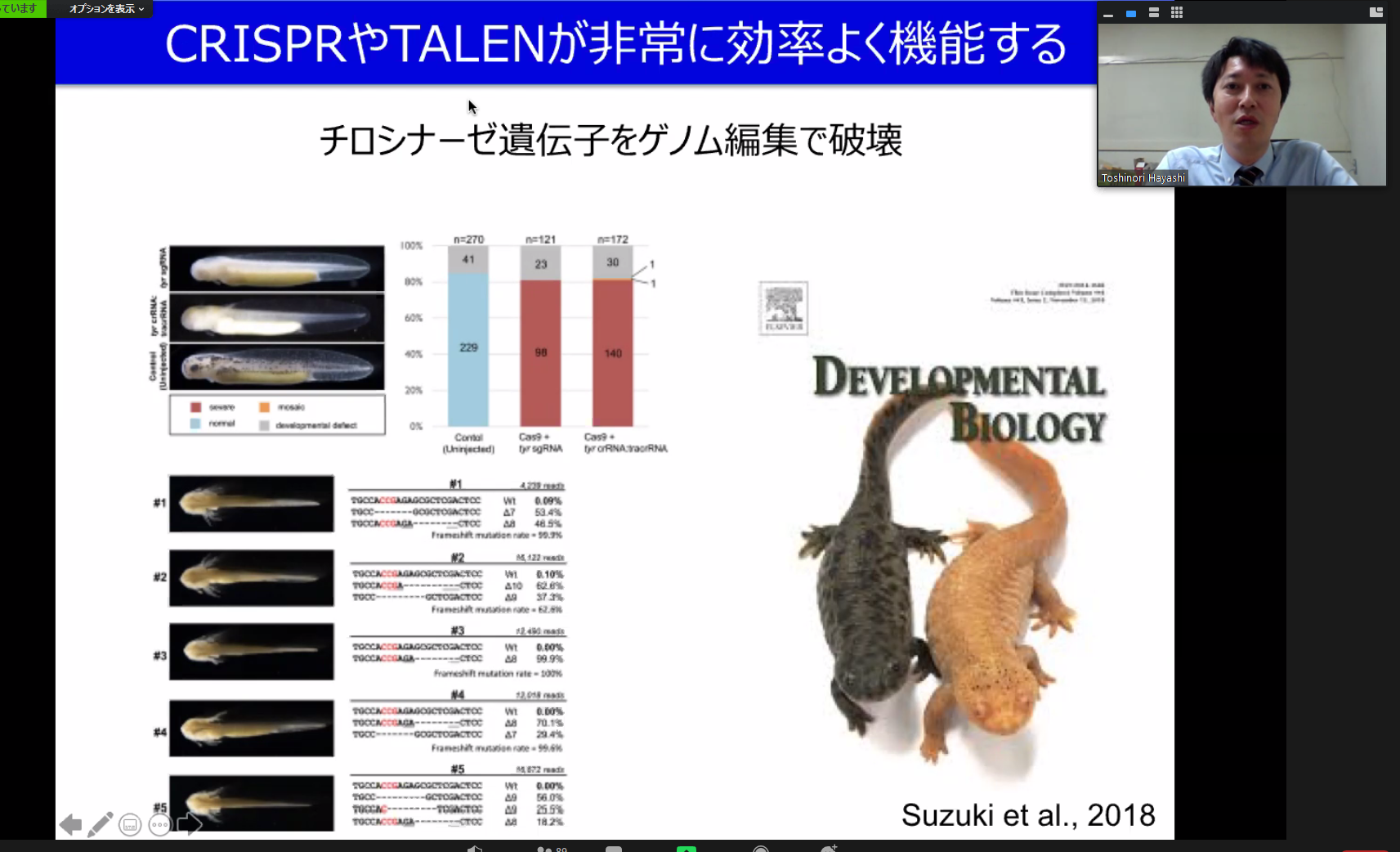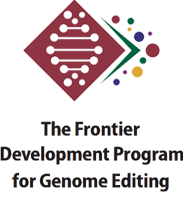 Doctoral Program for World-leading Innovative & Smart Education
Doctoral Program for World-leading Innovative & Smart Education
Activity
Second Seminar in Hiroshima University's Advanced Science Series Held, on the Theme of "Developing a Future Society with Genome Editing"
October 29, 2020
On October 29, 2020, The Frontier Development Program for Genome Editing, Hiroshima University held the second of four seminars as a webinar in its new advanced science seminar series on the theme of "Developing a Future Society with Genome Editing."
In the second seminar, Vice Director of the Amphibian Research Center (ARC) of Hiroshima University, Prof. Toshinori HAYASHI gave a lecture entitled "Introduction of the Iberian ribbed newt, an emerging model amphibian innovated by genome editing." He discussed the unique biological properties of the Iberian ribbed newt, notably including its prominent regeneration ability among vertebrates, which is of particular relevance to humans. Due to these characteristics, it was considered to be a tractable species suitable for genome editing, and its usefulness as an experimental model animal was recognized; however, it was not widely used due to difficulty breeding the animal. Prof. Hayashi's research group has developed a model experimental system using the Iberian ribbed newt, and has contributed to research fields using it as an experimental model animal. In his seminar, he also introduced his trials to expand the usage of the Iberian ribbed newt in various research fields, and the HR training system developed for this purpose.
In Hiroshima University's advanced science seminar series "Developing a Future Society with Genome Editing," speakers mainly from Hiroshima University in charge of the Frontier Development Program for Genome Editing (selected as a Doctoral Program for World-leading Innovative & Smart Education) introduce their efforts related to genome-editing technology-one of Hiroshima University's strengths-and give clear explanations of the present status and future of the technology. The series is planned to comprise four seminars. Details about the next and subsequent seminars will be given on the website of the Frontier Development Program for Genome Editing and through other media. We look forward to having many people attend the seminars.
 |
